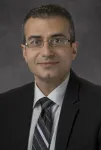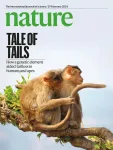(Press-News.org) The cardiac risks of smoking marijuana are comparable to those of smoking tobacco, according to researchers at UC San Francisco, who warn that the increasing use of cannabis across the country could lead to growing heart health problems.
The study found that people who used cannabis daily had a 25% increased risk of heart attack and a 42% increased risk of stroke compared to non-users.
Cannabis has become more popular with legalization. Recreational use is now permitted in 24 states, and as of 2019, nearly 4% said they used it daily and 18% used it annually. That is a significant increase since 2002, when 1.3% said they used it daily and 10.4% used it annually.
“Cannabis use is increasing in both prevalence and frequency, while conventional tobacco smoking is declining,” said Salomeh Keyhani, MD, MPH, professor of medicine at UCSF and senior author of the study, which appears Feb. 28, 2024, in the Journal of the American Heart Association. “Cannabis use by itself might, over time, become the more important risk factor.”
Cardiac risks even for those who never used tobacco
The researchers used data from the Behavioral Risk Factor Surveillance System, a national cross-sectional survey conducted by the Centers for Disease Control and Prevention to examine the association between cannabis use and adverse cardiovascular outcomes including coronary heart disease, heart attack and stroke.
They examined whether cannabis use was associated with coronary heart disease, acute myocardial infarction and stroke among the general adult population and among people who had never smoked tobacco.
Among the 434,104 respondents, about 4% were daily users, 7.1% were non-daily (about 5 days in the month) and 88.9% had not used any marijuana in the past 30 days. Among current users, about three-fourths said they mostly smoked it.
The study found that cannabis use was independently associated with adverse cardiovascular outcomes, and the odds rose with the number of days per month that a person used it.
The study also examined the effects for those who had never smoked or vaped tobacco, finding that just using cannabis was associated both with stroke, and with the combination of coronary heart disease, heart attack and stroke.
“This is an important public health finding, particularly given our ongoing efforts to reduce the burden of heart disease in this country,” said David C. Goff, M.D., Ph.D., director of the Division of Cardiovascular Sciences at the National Heart, Lung, and Blood Institute (NHLBI), which is part of the National Institutes of Health.
The perception of risk needs to change
People who smoke cannabis often hesitate to disclose it to their physicians, in part because they don’t consider it as harmful as smoking tobacco, and many states, like California, first approved it for medical uses. The researchers noted it will be an uphill battle to change these attitudes.
“There is a multibillion-dollar cannabis industry that markets cannabis use as not only harmless, but good for you,” Keyhani said. “It can be a challenging discussion to have with patients because there is evidence that cannabis has some therapeutic properties. However, as suggested by this study, cannabis use also has significant cardiovascular risks.”
Co-authors: Additional UCSF co-authors include Stanton Glantz, PhD, and Amy L. Byers, PhD, MPH.
Funding: NHLBI 1R01HL130484-01A1 and National Cancer Institute (grant T32 CA113710).
Disclaimer: The content is solely the responsibility of the authors and does not necessarily represent the official views of the National Institutes of Health.
About UCSF: The University of California, San Francisco (UCSF) is exclusively focused on the health sciences and is dedicated to promoting health worldwide through advanced biomedical research, graduate-level education in the life sciences and health professions, and excellence in patient care. UCSF Health, which serves as UCSF's primary academic medical center, includes top-ranked specialty hospitals and other clinical programs, and has affiliations throughout the Bay Area. UCSF School of Medicine also has a regional campus in Fresno. Learn more at https://ucsf.edu, or see our Fact Sheet.
###
Follow UCSF
ucsf.edu | Facebook.com/ucsf | YouTube.com/ucsf
END
Think smoking cannabis won’t damage your heart? Think again
2024-02-28
ELSE PRESS RELEASES FROM THIS DATE:
Early-life exposure to air pollution and childhood asthma cumulative incidence
2024-02-28
About The Study: In this study of 5,279 children, early life air pollution was associated with increased asthma incidence by early and middle childhood, with higher risk among minoritized families living in urban communities characterized by fewer opportunities and resources and multiple environmental co-exposures. Reducing asthma risk in the U.S. requires air pollution regulation and reduction combined with greater environmental, educational, and health equity at the community level.
Authors: Antonella Zanobetti, Ph.D., ...
Hourly heat exposure and acute ischemic stroke
2024-02-28
About The Study: The results of this study of 82,000 patients with acute ischemic stroke suggest that hourly heat exposure is associated with increased risk of acute ischemic stroke onset. This finding may benefit the formulation of public health strategies to reduce cerebrovascular risk associated with high ambient temperature under global warming.
Authors: Jing Zhao, Ph.D., and Haidong Kan, Ph.D., of Fudan University in Shanghai, China, are the corresponding authors.
To access the embargoed study: Visit our For The Media website at this link https://media.jamanetwork.com/
(doi:10.1001/jamanetworkopen.2024.0627)
Editor’s ...
CityUHK develops world-leading microwave photonics chip for high-speed signal processing
2024-02-28
A research team led by Professor Wang Cheng from the Department of Electrical Engineering (EE) at City University of Hong Kong (CityUHK) has developed a world-leading microwave photonic chip that is capable of performing ultrafast analog electronic signal processing and computation using optics.
The chip, which is 1,000 times faster and consumes less energy than a traditional electronic processor, has a wide range of applications, covering 5/6G wireless communication systems, high-resolution radar systems, artificial intelligence, computer vision, and image/video processing.
The team's research findings were published in the prestigious scientific ...
The “switch” that keeps the immune system from attacking the body
2024-02-28
A microscopic battle rages in our bodies, as our cells constantly fend off invaders through our immune system, a complex system of cells and proteins designed to protect us from harmful pathogens. One of its central components is the enzyme cyclic GMP-AMP synthase (cGAS), which acts as a sentinel, detecting foreign DNA and initiating an immune response.
However, the immune system requires precise regulation to prevent cGAS from mistakenly attacking the body's own tissues, leading to autoimmune disorders, which now affect about 10% of the global population.
Previous studies have revealed a little of how this ...
Study unravels the earliest cellular genesis of lung adenocarcinoma
2024-02-28
HOUSTON ― Researchers at The University of Texas MD Anderson Cancer Center built a new atlas of lung cells, uncovering new cellular pathways and precursors in the development of lung adenocarcinoma, the most common type of lung cancer. These findings, published today in Nature, open the door for development of new strategies to detect or intercept the disease in its earliest stages.
Led by Humam Kadara, Ph.D., professor of Translational Molecular Pathology and Linghua Wang, M.D., Ph.D., associate professor of Genomic Medicine, the team generated an atlas of around 250,000 normal and cancerous ...
Change in gene code may explain how human ancestors lost tails
2024-02-28
A genetic change in our ancient ancestors may partly explain why humans don’t have tails like monkeys, finds a new study led by researchers at NYU Grossman School of Medicine.
Published online February 28 as the cover story of the journal Nature, the work compared the DNA of tail-less apes and humans to that of tailed monkeys, and found an insertion of DNA shared by apes and humans, but missing in monkeys. When the research team engineered a series of mice to examine whether the insertion, in a gene called TBXT, affected their tails, they found a variety of tail effects, including some mice born without tails. ...
Risk of hospital readmission after surgery is high for older Americans
2024-02-28
New Haven, Conn. — A new Yale study finds an increased risk of hospital readmission for older Americans within 180 days of undergoing major surgery — a risk that is particularly acute for individuals who are frail or have dementia.
The findings were published Feb. 28 in the journal JAMA Network Open.
Previous research by the same Yale team demonstrated that major surgery is a common event for older Americans and also demonstrated a heightened mortality risk within one year of major surgery for people who are age 65 and older. The new study is the first to describe both the short-term risk (within 30 days) and longer-term ...
How molecular “handedness” emerged in early biology
2024-02-28
LA JOLLA, CA—Molecules often have a structural asymmetry called chirality, which means they can appear in alternative, mirror-image versions, akin to the left and right versions of human hands. One of the great mysteries about the origins of life on Earth is that virtually all of the fundamental molecules of biology, such as the building blocks of proteins and DNA, appear in just one chiral form.
Scripps Research chemists, in two high-profile studies, have now proposed an elegant solution to this mystery, showing how this single-handedness or “homochirality” could have become established in biology.
The studies were published in the Proceedings ...
The James Webb Space Telescope reveals the central role of low-mass galaxies in the reionization process of the Universe
2024-02-28
PARIS, France and BEER-SHEVA, Israel, February 28, 2024 – The James Webb Space Telescope (JWST)[1], developed by NASA and ESA, has just obtained the first spectra of very low-mass galaxies less than a billion years after the Big Bang. A technological feat made possible by the unique combination of JWST sensitivity and the gravitational lensing effect of the Abell 2744 cluster: nearby galaxies act like cosmic magnifiers, distorting space and amplifying the light of background galaxies. By demonstrating that small galaxies are very likely at the origin of the reionization of the universe, this discovery represents a major breakthrough in our knowledge of the cosmos.
The international research ...
Immunotherapy combination may benefit patients with transplanted kidneys and advanced skin cancers
2024-02-28
People who have had a kidney transplant are at high risk for developing skin cancers. New research directed by investigators from the Johns Hopkins Kimmel Cancer Center is exploring the best combination of treatments to target skin cancers while preserving the transplanted organs.
Now, they report results from a clinical trial testing a novel drug combination designed to stimulate the immune system to fight advanced, potentially lethal skin cancers while not permanently damaging patients’ transplanted kidneys. The treatment included two immune-suppressing drugs ...



